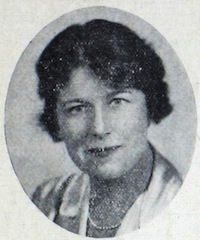Ada Nilsson
/Overview
Ada Nilsson born Toarps Gård, Södra Säm, Sweden March 21, 1872 (d. 1964). Swedish gynecologist and leader in women’s rights; pacifist; feminist; suffragist. Organized Frisan Women’s opposition to Great War, 1914. Co-founded Women’s Unarmed Uprising Against War opposing Mussolini’s war on Ethiopia, 1935. Urged disarmament at League of Nations. Aided refugees in both World Wars.
Quotations
On opposition to war: “We must be organized politically in order to change. . . women should be optimistic, and specialize in such a group on some basic questions for women—such as the population and its living conditions, earthquake, war and peace as well as education—which can drive the issues forward and significantly contribute to its solution in the desired direction, although the definitive the design will be through other forces, one of which is completely natural, our party-based parliamentary approach.” (Inga-Britta Melin, Lysistrata’s Daughters, 1999, pp. 117-8; photo riksarkivet)














